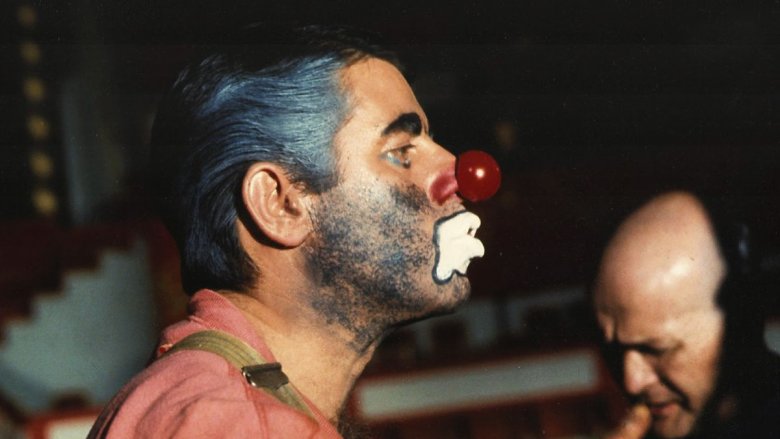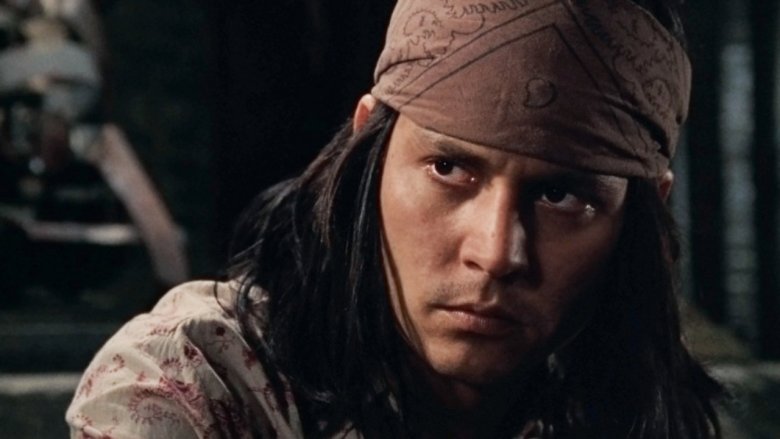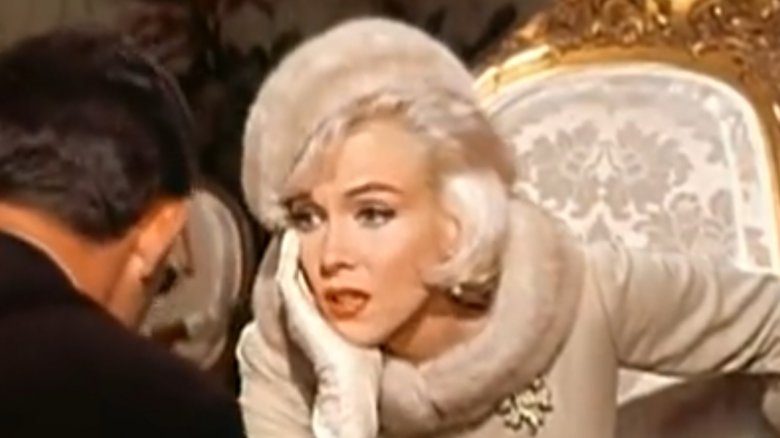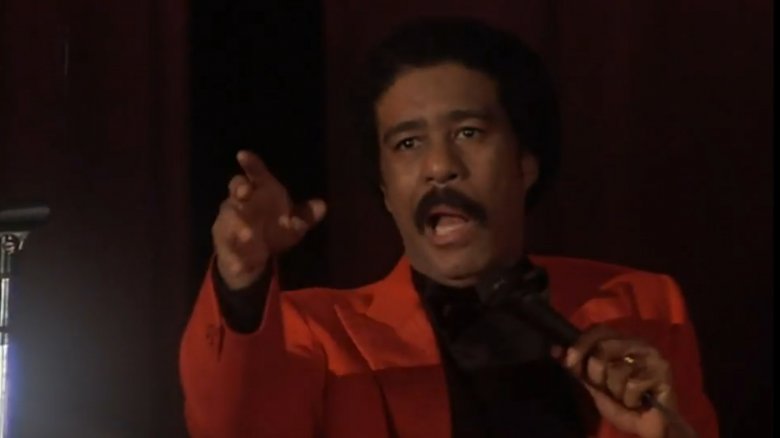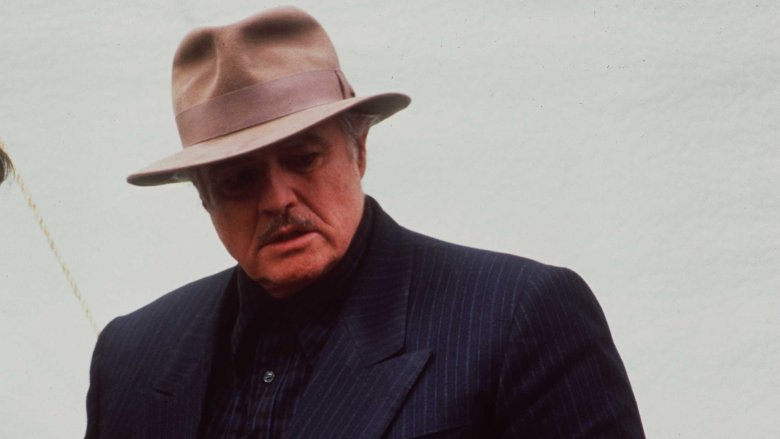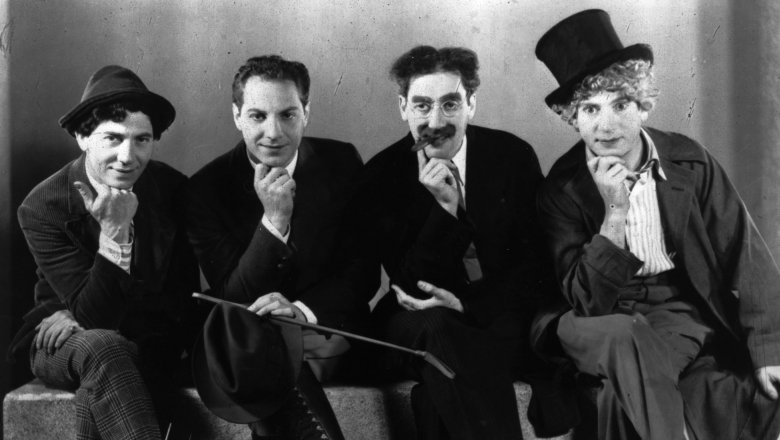Actors Who Single-Handedly Destroyed A Movie
You may have heard or read the adage, "art is its own reward." Some might consider this wisdom. Others might think it's a platitude meant to comfort the undiscovered. And still others might say it's a damn good thing, because otherwise there'd be no reward at all.
Not every movie gets made, and even out of those that are made, not every movie survives to be remembered. From conception to (hopefully) international distribution, films are threatened by production woes, legal battles, unpredictable tragedies, critical bombardment, and raging egos. And even if the film weathers all of that, its survival could be decided by nothing more complicated than one angry actor.
Compared to the studio, distributor, producers, or any of the other folks who sign the checks, an actor's power can sometimes feel comparatively small — but that doesn't mean they haven't managed to bring a movie's release to a screeching halt on more than one occasion. These films all survived conception and production, but were destroyed by one or two actors — sometimes simply by being withheld, and sometimes through literal physical destruction.
Whatever you do, don't send in the clowns
It's unlikely any aborted film enjoys as much infamy as Jerry Lewis' The Day the Clown Cried.
Set during the Holocaust, The Day the Clown Cried focuses on Helmut Doork, a German clown imprisoned for publicly mocking Adolf Hitler. His internment camp commanders offer him a deal: use his clown talents to help herd the Jewish children on the trains destined for Auschwitz, and the commander will get Doork's case reviewed. Doork agrees.
The Day the Clown Cried suffered setbacks right away. Producer Nat Wachsberger proved unable to finance the film and Lewis lost millions of his own picking up the slack. Wachsberger failed to pay scriptwriter Joan O'Brien before the well ran dry and that failure – plus O'Brien's anger over story changes — convinced her to refuse to give up rights to release the film.
A handful of industry professionals claim to have seen the film, admittedly through occasionally duplicitous means. Actor Harry Shearer said it was "so drastically wrong and its comedy is so wildly misplaced." French critic Jean-Michel Frodon claimed director Xavier Giannoli treated him to a viewing, and deemed the movie "daring" as well as "very interesting and important."
In spite of continued interest, Lewis repeatedly expressed nothing but disappointment with the film. At the 2013 Cannes Film Festival, Lewis told journalists, "You will never see it, no one will ever see it, because I am embarrassed at the poor work."
It's possible The Day the Clown Cried isn't lost forever — but if you want to see it, stay healthy. Lewis donated a copy of the film to the Library of Congress with the agreement that the film would not be screened until 2024.
Home of The Brave
The Brave was adapted from a Gregory McDonald novel about a Native American man who chooses to die in a snuff film for $50,000 in order to help his family. Considering sacrifice for the sake of family is such an integral part of the story, the life of the film began with a horrific irony: Aziz Ghazal — the untested director chosen for the project — murdered his daughter and his wife before committing suicide days before filming was to begin.
The project was shelved until it caught Johnny Depp's eye. He rewrote the script with brother D.P. Depp. With both Depp and Marlon Brando in the film (Brando plays McCarthy, the man paying for the snuff film), Depp had little trouble initially finding financing, but he refused to give up U.S. distribution rights because he was worried a U.S. distributor would "badger" him "beyond belief" about making changes to suit the palates of American audiences.
When The Brave debuted at Cannes in 1997, reviews were mixed; American critics in particular weren't happy with the film. Time hasn't improved its reception, and as lead actor, director, and co-writer, Depp takes most of the heat. Variety called The Brave "a turgid and unbelievable neo-Western." Time Out's Geoffrey Andrews said "it's tediously slow and hugely narcissistic ... the camera focuses repeatedly on Depp's bandana'd head and rippling torso."
Still in possession of U.S. distribution rights, Depp has refused The Brave's release in the States. As he put it, he's content to "put it in a vault and let it sit."
The Fall
The title of Marilyn Monroe's unfinished final film – Something's Got to Give, a remake of the 1940 comedy My Favorite Wife – is fitting considering the "something" proved to be Monroe herself.
Work on Something's Got to Give started in April 1962, and from the beginning, it was clear Monroe's health wasn't up to par. Between April and June there were 32 working days; out of those days, Monroe only showed up for 12. When she did appear she was often hours late. At first, the studio worked around Monroe's schedule, but relations cooled in May when, while apparently too sick to regularly show up to work, Monroe took a trip to New York for her famous breathy "Happy Birthday" performance for President John F. Kennedy.
On June 8, after she hadn't appeared at work for seven days, Monroe was fired from Something's Got to Give. She sent a telegram to the cast and crew: "Please...it was not my doing. I so looked forward to working with you." There were attempts to find other actresses to fill Monroe's shoes, but Dean Martin refused to move forward with the film without Monroe. Twentieth Century Fox still made a My Favorite Wife remake the following year titled Move Over, Darling with a mostly different cast and crew.
Two months after her firing from Something's Got to Give, Monroe was found dead in her bedroom.
This is why you don't bring work home
Like the elusive Humor Risk, accounts differ regarding Richard Pryor's lost film Uncle Tom's Fairy Tales: A Movie for Homosexuals — right down to the title.
Penelope Spheeris was a student in 1969 when she directed Uncle Tom's Fairy Tales. She'd go on to direct hits and acclaimed features like Wayne's World and The Decline of Western Civilization, but looking back, it's kind of amazing she didn't retire after — or during — this production with Pryor. Uncle Tom's Fairy Tales, which would later be retitled The Trial and then Bon Appétit, was apparently about Black Panthers kidnapping a wealthy white man and putting him on trial for the crimes of white America. Specific story elements get murky, however. For example, Pryor claimed the title was changed to Bon Appétit after a scene featuring a sex act, but Spheeris claimed no such scene existed.
Regardless of title or plot, the film died a quick death at its star's hands. Nine days after Spheeris gave birth to her daughter Anna, as Spheeris was at Pryor's home working on a cut of Uncle Tom's Fairy Tales that Pryor wanted to show Bill Cosby, Pryor and his wife Shelley were arguing over the money spent on the film. "You think I love this film more than you?" he's said to have asked her. "Watch this." He then picked up the film and literally tore it to pieces with his hands.
Spheeris was able to put it back together, but in a state that was barely presentable. In 2005, after bits and pieces of the film were seen in the Directors Guild of America's tribute to Pryor, the comedian contacted Spheeris and learned she'd donated it to the Academy of Motion Picture Arts and Sciences. Pryor sued Spheeris and his daughter Rain, claiming they conspired to steal the negatives and prints from his home.
Now that we're big
Before Titanic made Leo Dicaprio a household name, he appeared in the black-and-white indie film Don's Plum directed by Dicaprio's friend R.D. Robb. According to some, for Dicaprio and others who appeared in the film, the time between Don's Plum and Titanic wasn't quite long enough.
Don's Plum tells the story of a group of friends spending a night in a Hollywood diner. The film was shot over the course of a few days in 1996, and would never see legal release in North America.
Dicaprio and co-star Tobey Maguire maintain that upon agreeing to appear in Don's Plum, they thought the film was supposed to be short and only did the work as a favor for a friend. Once the producers started amassing financial backing, Dicaprio and Maguire felt exploited. The filmmakers claimed everyone knew it was meant to be a feature, and even claimed that at a screening for industry insiders, Dicaprio was so enthused about the finished product that he started "jumping out of his seat and smacking the floor."
In 1998, producer David Stutman sued Dicaprio and Maguire, claiming the pair were using industry contacts to keep Don's Plum from release. Stutman accused the stars of using their clout to convince distributors to pass on the film, and said Dicaprio had Stutman's talent agency drop him from their list of clients. Eventually, a settlement was reached that allowed for the film's release, but only outside the United States and Canada.
Wait. What?
When sometimes-Simpsons writer Bob Bendetson approached Marlon Brando about doing voice work for his animated feature Big Bug Man, Brando said yes, but he didn't want to voice the 600-pound Nicholas Dunderbeck. Instead, he wanted to voice the elderly female villain Mrs. Sour.
Brando's voice work on the film only took one day. And he did it in drag.
The screen legend who built his career playing uber males like A Streetcar Named Desire's Stanley Kowalski — and, of course, Vito Corleone of The Godfather — spent his final day working on a film (he died the following month) in a blond wig, a dress, white gloves, and full makeup. According to Big Bug Man's executive producer Gabriel Grunfeld, Brando had a blast doing the work, telling Grunfeld it was "the most fun I've had since playing Julius Caesar."
Big Bug Man – starring Brendan Fraser as the superhero lead — was originally slated for release in 2006, but it never happened. It seems impossible to lay the blame for that at Brando's doorstep, so one might argue his inclusion here is an error. However, regardless of subject matter — whether that subject is films actors destroyed, animated films, unfinished films or 19th-century Italian economics — it seems worthy to point out that the freaking Godfather made his final film dressed as an old lady and had an absolute ball doing it.
Risk vs. Reward
There isn't a lot that can be confirmed about the Marx Brothers' first stab at a film — a silent film at that — which remains mysteriously lost with numerous theories as to exactly how it disappeared.
We can't even be sure about the name which, depending on who you believe, was either Humor Risk or Humorisk, though it was referred to definitively as Humor Risk in 1921 editions of both the New York Tribune and The Evening World. Accounts differ on where it was shot, what happened to it, and which of four women may have been the lead actress.
As to why the film was lost, accounts seem to agree at least that the Marx Brothers were unhappy with Humor Risk and didn't want it to be released. But as to precisely how it was lost, no one knows. Some stories claim that the film was accidentally thrown away, others say it was destroyed intentionally by Groucho Marx, and some argue that it actually survived and was packaged for distribution the the later 1920s.
Regardless, what can't be argued is math. With nearly a century having passed without a DVD release of Humor Risk, it seems likely that unless Harrison Ford finds a dusty copy in a Mayan temple, it's as lost as lost can be.

